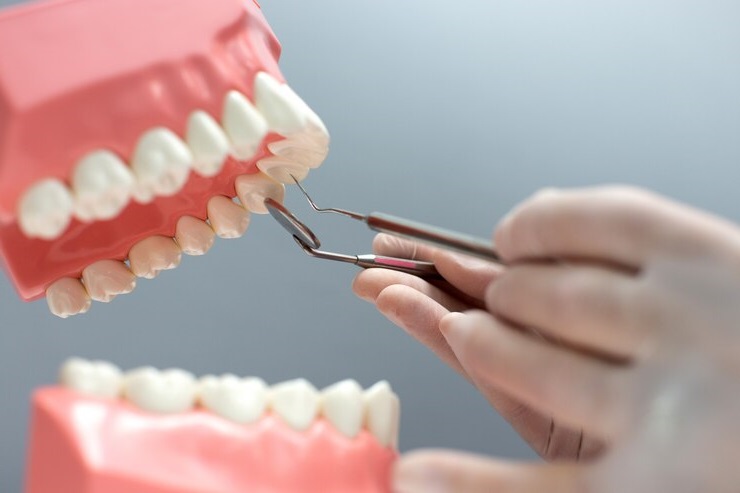
You’ve probably heard about probiotics and how they can benefit your gut health. But did you know there’s a special category called oral probiotics that specifically targets your mouth and dental health? It might make you wonder, what exactly is the difference between probiotics and oral probiotics? Let’s explore this fascinating topic and understand how these tiny microorganisms can make a big impact on your overall health.
Understanding Probiotics
Probiotics are live microorganisms, often referred to as “good” or “friendly” bacteria, that provide numerous health benefits when consumed in adequate amounts. They are most commonly associated with digestive health, but their benefits extend far beyond the gut.
These beneficial bacteria help maintain a healthy balance of gut microbiota, which is crucial for proper digestion, immune function, and even mental health. Common sources of probiotics include fermented foods like yogurt, kefir, sauerkraut, and dietary supplements.
Types of Probiotics
There are many different strains of probiotics, each with unique benefits. The most well-known genera include Lactobacillus and Bifidobacterium, but there are many others that play important roles in maintaining health.
- Lactobacillus: Often found in yogurt and other fermented foods, this strain helps with digestion and immune function.
- Bifidobacterium: Commonly found in the intestines, it helps break down food, absorb nutrients, and prevent the growth of harmful bacteria.
- Saccharomyces boulardii: A type of yeast that is used to prevent and treat diarrhea and other gastrointestinal issues.
What Are Oral Probiotics?
While probiotics generally focus on gut health, oral probiotics are specifically designed to benefit the health of your mouth. They help balance the microbiota in the oral cavity, reducing harmful bacteria and promoting overall dental health.
Oral probiotics are found in specialized dental products like probiotic toothpaste, mouthwash, and lozenges. They can also be taken as supplements. The key difference between probiotics and oral probiotics lies in their targeted application and specific strains used.
Key Strains of Oral Probiotics
Certain strains of probiotics are particularly beneficial for oral health. These strains help maintain a healthy balance of bacteria in the mouth, which can prevent dental issues like cavities, gum disease, and bad breath.
- Streptococcus salivarius: This strain helps reduce bad breath and prevent oral infections.
- Lactobacillus reuteri: Known for its ability to reduce plaque and gingivitis.
- Lactobacillus paracasei: Helps prevent tooth decay by inhibiting the growth of harmful bacteria.
The Difference in Benefits: Probiotics vs. Oral Probiotics
Understanding the difference between probiotics and oral probiotics involves looking at the specific benefits each type provides. While both promote a healthy balance of bacteria, their primary areas of impact are quite distinct.
Benefits of Probiotics
Probiotics offer a wide range of health benefits, primarily focused on the digestive system but extending to other areas of the body as well.
- Improved Digestion: Probiotics help maintain a healthy gut microbiota, which is crucial for proper digestion and nutrient absorption.
- Enhanced Immune Function: By promoting a balanced gut environment, probiotics can boost the immune system.
- Mental Health Support: Emerging research suggests that gut health is linked to mental health, with probiotics potentially reducing symptoms of anxiety and depression.
Benefits of Oral Probiotics
Oral probiotics, on the other hand, are specifically designed to support oral health. Their benefits are targeted towards maintaining a healthy balance of bacteria in the mouth.
- Reduced Bad Breath: Oral probiotics can help reduce bad breath by inhibiting the growth of odor-causing bacteria.
- Prevention of Cavities: By promoting a healthy balance of bacteria, oral probiotics can help prevent tooth decay.
- Improved Gum Health: Oral probiotics can reduce inflammation and prevent gum disease by balancing the oral microbiota.
How to Incorporate Probiotics and Oral Probiotics into Your Routine
Incorporating both probiotics and oral probiotics into your daily routine can provide comprehensive health benefits. Here are some practical ways to include them in your diet and oral care regimen.
Consuming Probiotics
Eating foods rich in probiotics is a natural and delicious way to support your gut health.
- Yogurt: A common source of probiotics, especially Lactobacillus strains.
- Kefir: A fermented milk drink that is packed with beneficial bacteria.
- Sauerkraut: Fermented cabbage that provides a good dose of probiotics.
- Kimchi: A spicy fermented vegetable dish from Korea that is rich in probiotics.
Using Oral Probiotics
To specifically target oral health, you can use products designed to deliver oral probiotics directly to your mouth.
- Probiotic Toothpaste: Helps maintain a healthy balance of bacteria in the mouth.
- Probiotic Mouthwash: Supports oral health by reducing harmful bacteria.
- Probiotic Lozenges: Convenient and effective in delivering oral probiotics.
Probiotic Supplements
If you prefer, you can also take probiotic supplements that contain both gut and oral strains. Look for products that specify the strains and their intended benefits.
- Capsules: Easy to take and provide a concentrated dose of probiotics.
- Powders: Can be mixed into drinks or food for a simple way to consume probiotics.
- Chewables: Great for those who prefer not to swallow pills and can be specifically designed to support both gut and oral health.
Potential Side Effects and Considerations
While probiotics and oral probiotics are generally safe and beneficial for most people, it’s important to be aware of potential side effects and considerations.
Digestive Discomfort
Some people may experience mild digestive discomfort when first starting probiotics. This is usually temporary as your body adjusts to the new bacteria.
Allergies
If you have allergies to dairy or other common ingredients in probiotic foods, you should choose products that are free from these allergens. Always read labels carefully and consult with a healthcare professional if you have any concerns.
Quality and Potency
When choosing probiotic supplements or foods, it’s important to consider the quality and potency of the products. Look for those that provide detailed information about the strains and colony-forming units (CFUs) to ensure you’re getting an effective dose.
The Future of Probiotics and Oral Probiotics
As research on probiotics continues to evolve, we can expect to see more advanced and targeted products designed to support both gut and oral health. Understanding the difference between probiotics and oral probiotics will become even more important as new strains and applications are discovered.
Innovative Probiotic Products
We may see more innovative probiotic products that combine gut and oral health benefits. These could include advanced formulations of supplements, drinks, and foods that maximize the health benefits of probiotics and oral probiotics.
Personalized Probiotic Therapies
Personalized probiotic therapies tailored to an individual’s unique microbiome could become more common. This approach would provide targeted support for maintaining a healthy balance of bacteria in both the gut and mouth, improving overall health outcomes.
Conclusion
Understanding the difference between probiotics and oral probiotics can significantly impact your health. By incorporating both types into your daily routine, you can support a healthy balance of bacteria in your gut and mouth, leading to improved digestion, enhanced immune function, and better oral health. Remember, while both probiotics and oral probiotics offer unique benefits, they should be used as part of a balanced diet and healthy lifestyle for the best results.





